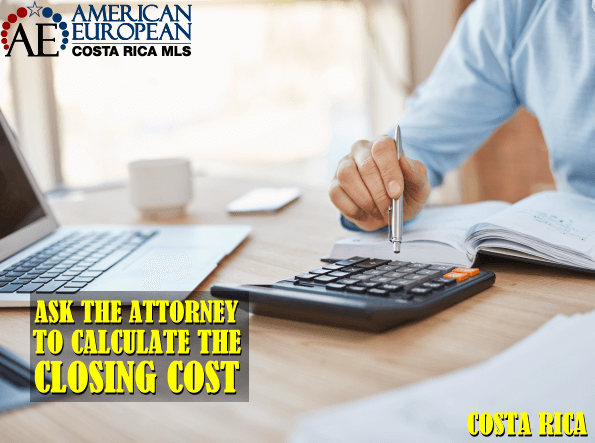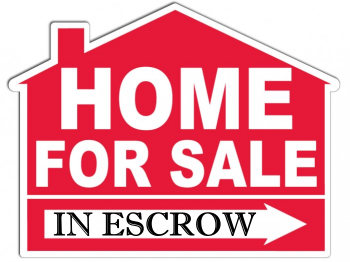Estimated Reading Time: 4 minutes
The Costa Rica closing costs when purchasing or selling a property is just under 4% of the purchase price. When you research, you will find blogs that say 3.5% and others even less. Learn in this article about closing costs, how to calculate them, and who pays for them.
It depends on which side of the purchase/sale you are on and what you decide to include or exclude from the closing costs. Often, realtors will suggest your offer to the seller is to split the closing 50/50. It’s a form of negotiating your purchase price, but more about this is below.
No matter what the seller or your realtor says, ALWAYS ask your attorney to send you a quote for the closing costs and their closing services. Do this before you even make an offer to the seller.
In the past, transferring the corporation owning the property was cheaper than transferring the property title. That was done to save on transfer tax. Today, the cost of transferring the title or the corporation that owns the title is exactly the same.

What includes the closing costs?
- Property transfer taxes and stamps
- Notary fees
- Escrow fees
1. Property transfer taxes and stamps
The transfer taxes and stamps consist of the following:
A. Transfer Tax 1.5%
B. National Registry Stamp .5%
C. Documentary Stamps
c. 1 Agrarian = ¢1,000 for every million colones
c. 2 Fiscal Stamp C625
c. 3 National Archives C20
c. 4 Bar Association C5,000
c. 5 Municipal = ¢2,000 for every million colones
2. Notary fees
The Colegio de Abogados de Costa Rica dictates the notary fees for property registration:
- Up to 10,000,000 Colones, a 2% fee
- On the following 5,000,000, a 1.5% fee
- Then, on the following 15,000,000, a 1.25% fee
- On the remaining balance, a 1% fee
All services in Costa Rica, including notary fees, carry a 13% VAT. (not included in the actual closing fee calculator by Roger Petersen below.

3. Escrow
Sometimes, the seller does not agree to share in the escrow fees. But, if escrow is needed to hold an earnest money deposit, in my opinion, the seller should pay 50% of the escrow fees. You can learn more about escrow in “the use of escrow services when buying Costa Rica real estate.”
Closing cost calculator
Make the calculation of closing costs on Costa Rica property effortless and visit the Attorney Property Services closing cost calculator below. Make sure to adjust the dollar/colon exchange before starting your calculation. Property tax is always calculated in Colones.
A mortgage
When the seller finances any percentage of the purchase price and a mortgage needs to be drafted to guarantee payment, the seller may request his/her attorney drafts the transfer deed or at least do the mortgage document. The title transfer and the mortgage are often done in one document.
The buyer may insist that the notary/attorney drafts the transfer deed and let the seller’s notary/attorney draft a separate mortgage instrument. In this case, the registration fee is higher because the mortgage is being drafted separately. The buyer will always pay for the cost of the mortgage registration. This should be described in the offer to purchase and not be decided at closing.
Who pays the closing costs on Costa Rica property?
Buyer and seller usually share the closing costs 50/50 unless negotiated differently. This makes the closing costs a negotiable part of the offer process. The buyer pays the mortgage fees when the purchase price is financed.
If there is an existing mortgage on the property, the closing attorney will hold the balance owed on the mortgage. The attorney will then pay it off and make sure the title is cleared in the National Register. The seller must pay the costs of clearing this mortgage, as the buyer must receive a clear title.
If you like this article about closing costs on purchasing a Costa Rica property, contact us now. We have all the necessary knowledge to carry you through a painless purchase.


















